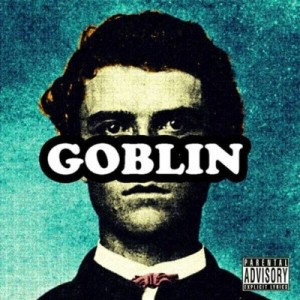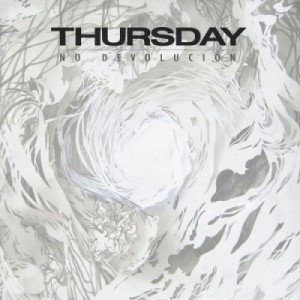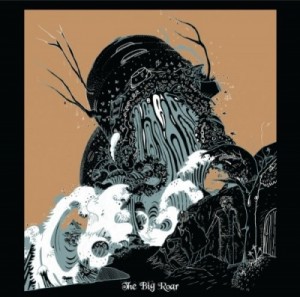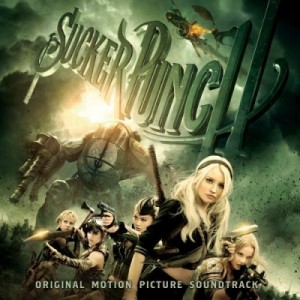Reviews
Review: Balance and Composure – Separation
Balance and Composure – Separation
Released: May 10, 2011
Label: No Sleep Records
Purchase: iTunes | Insound | Amazon
Fans of Balance and Composure have been eagerly awaiting a full length release for quite some time now. After releasing two mature EPs and arguably the better side of a split with Tigers Jaw over the last three years, Balance and Composure finally appeased fans with news of Separation, comprised of twelve tracks.
Upon first listen, however, it’s quite possible avid followers of Balance and Composure will be disappointed. Moving towards a more streamlined sound definitely contributed to a loss of “oomph” and raw emotion from the band’s music. However, this more concentrated approach does give Separation a sense of cohesiveness and focus, attributes vital to a successful album.
Separation excels most on songs where Balance and Composure’s 90’s influences are the most apparent. “Stonehands” delivers in this aspect, showcasing both emo and grunge influences, though vocalist Jon Simmons tends to sing a bit nasally especially on words with “long e” vowels. A better culmination of 90’s style and Simmons’ vocal performance is the title track. On the chorus, Simmons utilizes his perfected “sing scream”, a gritty yell, but with definitive pitch. It’s a technique Jesse Lacey of Brand New and Andy Hull of Manchester Orchestra also use, though Simmons’ style feels more passionate.
As a whole, though, Separation seems like more of a turn towards alternative rock. While Balance and Composure do perform this genre with ease and more than competently (take the southern rock vibe of “Galena” or grit and angst of “I Tore You Apart In My Head” for instance), at times the record leans toward typicality, most notably on “Void”, an unfortunate pick for an album opener.
The loss of emotional immediacy might be due in part to the album’s generally flat production. Producer Brian McTernan’s past work has been inconsistent, dipping especially on Emarosa‘s latest self-titled release. WhileSeparation is definitely an improvement for McTernan, the drums sound tinny and lack tone and it’s nearly impossible to tell the band has three guitarists. The production just doesn’t feel as dynamic or raw as a band like Balance and Composure, one who thrives on straddling the crossroads of technicality and passion, needs to fully excel.
However, after multiple listens, Balance and Composure’s passion permeates McTernan’s iffy producing job. Tracks like album standout “Patience” exude intense feeling in the music. Balance and Composure mean every lyric, every guitar strum, every bass line, and every snare hit. Though perhaps Separation only fully demonstrates this with the listener’s patience (yes, I went there), the album isn’t a regression from past work. Balance and Composure is still miles ahead of most other bands operating in their genre. The reason?
Authenticity.
7.7
Standout Tracks: “Patience”, “Galena”, and “I Tore You Apart In My Head”
Review: City and Colour – Little Hell
City and Colour – Little Hell
Released: June 7, 2011
Label: Dine Alone Records
Purchase: iTunes | Insound | Amazon
Recorded to tape in a church sans-computers and fancy recording booths is Dallas Green’s third studio album “Little Hell”, a beautiful record that changes up Green’s pure man-and-guitar sound, yet still maintains the unique City and Colour feel that listeners have grown to love.
Since his debut, the singer-songwriter has grown both musically and creatively. Little Hell is a true indicator of said growth; mixing up the track list with full band rock songs, trademark acoustic songs, and introducing synths and strings to diversify the instrumentals. It’s difficult to describe Little Hell accurately, as it doesn’t fit into one specific genre like Bring Me Your Love may have; however, each song is sung sincerely, and crafted with the utmost care.
The signature minimalist acoustic sound is not all lost in Little Hell, as “Silver and Gold” and “Northern Wind” primarily consist of just the man and his guitar, with the latter being a heart-on-sleeve song taking roots fromBring Me Your Love’s “The Girl”.
“Whether a natural disaster ripped it from it’s foundation
Or an economic tragedy tore apart it’s family
They’re all empty.”
“Natural Disaster” is a full band song that tackles the problems in our world, created by “natural disaster(s)” and “economic traged(ies)”. Given the subject, it’s surprising this song does not drip with melancholy. Regardless, this imagery-ridden track is one of Little Hell’s standouts.
Title track “Little Hell” begins with a riff bearing slight resemblance to those of Death Cab for Cutie. “Will we get out of this little hell?” is a stunning end to the song with Green’s smooth, effortless vocals and slow tempo band instrumental.
“Weightless” is a departure from Green’s more acoustic tracks, introducing an indie rock feel driven by the drumbeat rather than guitar. Interestingly, it works. Green’s distinct voice does not lose its clarity when singing loudly and contrasts unusually well with the dirty, flange-y guitar riffs.
Little Hell is by all means an emotional ride. “Hope For Now” concludes the record, beginning with a soft acoustic sound before the lyrics crescendo the song into a full band, deep guitar blasting second half with Green replying to “If I could sing one song and it could save someone’s life”, chanting “Then I would sing, all that I could sing”. This is a song that you truly feel.
Little Hell is not quite a complete transformation of one-man band City and Colour, but it is a work that reflects the change Dallas Green has gone through in his life since Sometimes. The fact Little Hell did not inherit an acoustic sound may disappoint some; however, Green is at a new stage in his career, in his life, and it is no surprise that his music changes accordingly. What hasn’t changed though, is Green’s second-to-none voice and musical talent that merits him to being one of the best singer-songwriters alive.
8.8
Standout Tracks: “Hope For Now”, “Little Hell”, “Natural Disaster”, and “The Grand Optimist”
Review: Fleet Foxes – Helplessness Blues
Fleet Foxes – Helplessness Blues
Released: May 2, 2011
Label: Sub Pop
Purchase: iTunes | Insound | Amazon
Indie-folk darlings Fleet Foxes shot to fame in 2008 with the release of their highly acclaimed self-titled debut album. Their vocal harmonies and organic, grassroots lyrics and music that define the band were a unique addition to the prevailing music scene. With the release of their follow up, Helplessness Blues, the band faces the challenge of dealing with their fame and living up to the high bar they already set. With a new level of accessibility, they manage to not only reach this bar, but even surpass it.
All across the board, the band displays a previously unseen level of confidence. Singer Robin Pecknold steps more into the spotlight, not shying behind the backup harmonies, though fans of these harmonies should know that they are still adequately present. The music has much more character, with stronger melodies and more varied instrumentation, such as the violins of “Bedouin Dress” or the effective flutes on “Lorelai”. There is also more experimentation in the musicianship, tending away from the traditional verse-chorus structure, especially in its two-part songs, “The Plains/Bitter Dancer” and “The Shrine/An Argument”.
More important than all of these new strides, however, is the improvement in the lyrics. The band’s slice of Americana on their debut was refreshing, but as enjoyable as the imagery and stories were, the lyrics rarely felt deep or relatable. Their success prevents them from revisiting many of these themes, but they have been supplanted with charming, universal musings and beautifully touching tales of love. In an album packed full of high points, the lyrics are the biggest of them.
“Sim Sala Bim” is an excellent combination of all of these developments. It starts with a calm description of a dream, but vanishes with a swelling burst of strings, leading to the questions, “What makes me love you despite the reservations? What do I see in your eyes besides my reflection hanging high? Are you off somewhere reciting incantations, ‘Sim Sala Bim’ on your tongue?” This climax gives way to a relaxing denouement, the same mood as the beginning. A review of The Avett Brothers’ most recent album said that the reviewer didn’t want to listen to it at work for fear of being forced to tears. In this song and several others on Blues, the threat is just as present.
Several other songs employ similarly engaging song structures. “The Plains/Bitter Dancer” builds with the band’s trademark cascading vocal waves, but later evolves into a sound reminiscent of Simon and Garfunkel. “The Shrine/An Argument” has four movements. Hearing the first, with its surprisingly racing intro and Pecknold’s intense, haunting vocal dynamics, listeners may find it difficult to top, but the tonally darker second movement certainly gives it a run for its money. The blatantly ugly and chaotic woodwind outro is the sole weak part on the entire album.
Although not listed as a two-part song, the titular track is perhaps the most dichotomous. The musically and lyrically reflective second half answers the helplessness blues proposed in the first. Deep, catchy, musically interesting, and five minutes of nirvana in general, it stands out as a strong contender for track of the year.
With such high strengths, one might expect that other songs suffer in comparison, but nearly every single track holds its own even in such great company. The mildly swinging “Bedouin Dress” is a fun jaunt down memory lane. “Lorelai” makes excellent use of its bouncing ¾ time with an exceedingly simple, yet beautiful melody. Instrumentals occasionally feel like wasted tracks, but even “The Cascades” is a highly pleasurable journey. Drummer Josh Tillman takes center stage driving closer “Grown Ocean,” which effectively sums up the experience of the entire album.
The only track that doesn’t compare with the rest is “Blue Spotted Tail.” Although it has a poetic structure similar to “Someone You’d Admire,” “Tail” fails unlike “Admire” because its lyrics go slightly too far over the philosophical deep end. While “Why in the night sky are the lights hung? Why is the Earth moving ‘round the sun, floating in the vacuum with no purpose, not a one?” may seem like deep lyrics, they feel out of place on the album and ultimately boil down to meaningless passing thoughts.
“Tail” aside, the album is packed with strong songs and even stronger songs. I felt that I didn’t appreciate their debut as much as everyone else, but such is not the case with Helplessness Blues. The songs have more personality and the lyrics are greater than I could have expected. Just as their debut was oft-pegged for album of the year, Blues is a worthy follow up already in contention for the title this year.
9.4
Standout Tracks: “Sim Sala Bim”, “Helplessness Blues”, and “Lorelai”
Review: Tyler, The Creator – Goblin
Tyler, The Creator – Goblin
Released: May 10, 2011
Label: XL Recordings
Purchase: iTunes | Insound | Amazon
Fame is a rather unfortunate phenomenon, an idea that rapper Tyler, The Creator certainly understands. The past few months have been a whirlwind ride for Tyler and his Odd Future friends, from Tyler and Hodgy Beats’s fear-inducing performance on Jimmy Fallon to the formation of the group’s own Odd Future Records record label. Goblin, Tyler’s first official release on a record label, has been surrounded by an incredible amount of hype, blowing up the blogosphere and getting Tyler, as he puts it on the first song, “cosigns from rappers that I don’t even like.” This hype and the young rapper’s sudden exposure to fame undoubtedly affected the creative process Goblin, but is it for the better?
Unfortunately, no. Although Goblin features a much-improved Tyler – in terms of both lyricism and storytelling – the fame that Tyler is dealing with hinders the album and restricts his creativity, causing the album to fall well short of his first release, Bastard. Goblin, to put it simply, is weighed down by the burden of matching the massive hype and pressure surrounding it. In the days of Bastard, Tyler made music for himself, something he has stated in the past and again brings up on opening track “Goblin”, but now, his music is no longer just for him; whether he likes it or not, he has become a sort of cult hero and his music is as much for them as it is for himself.
His fans aren’t the only ones listening to his music, however. Because of his naturally dark subject material, Tyler is forced to qualify his lyrics, spending a large chunk of the album pointing out that his stories of killing and misbehavior are in fact stories. On “Radicals”, Tyler opens with the lines “Don’t do anything that I say in this song. It’s [expletive] fiction. If anything happens, don’t [expletive] blame me, white America.” For all intents and purposes, Tyler can be compared to a young Eminem, albeit one who is way more apologetic.
Apologies, precautions, and qualifications aside, the lyricism on Goblin shows a natural progression from the days of The Odd Future Tape, Bastard, and even last year’s Radical. He’s still an angsty, obsessed teenager with numerous problems and his favorite target is still his missing father. The one problem, however, is how erratically hit-and-miss his lyrical style can be, leading to the inconsistency of the entire album, one of the main flaws of the album. Goblin contains a few very good songs, but also a handful of very bad ones.
When Tyler is on his A-game, he is, in fact, a “walking paradox.” As Wolf Haley, he spins tales of misogyny, juxtaposing with Tyler’s vulnerability in his personal search for love; Wolf Haley commands his “Wolf Gang” followers to revolt against everything, while Tyler worries that people may blame him for others’ wrongdoings. The only problem is, cringe-worthy moments like the muddled “Radicals”, the utterly boring “Fish”, the swag-rap tribute “Bitch Suck Dick”, and the incredibly tedious posse-cut “Window” weigh down the album, especially due to the album’s length — 74 minutes of Tyler’s minimal beats, variety of voices, and Dr. TC-framed-dialogue.
Goblin is essentially and fundamentally very similar to his first album Bastard, featuring Tyler discussing his life problems with his counselor Dr. TC. The production is also incredibly similar; Tyler’s never been lavish with his beats, electing to take a minimal, jarring style similar to that of his idols The Neptunes. Unfortunately, his beats begin to bore as the album drags along, showing that Tyler still has plenty of room to grow. To put it simply, his other beats pale in comparison to the masterful, eerie beat of “Yonkers”.
Goblin, in essence, is a strong effort by the nineteen-year-old rapper. He provides an ominous yet introspective look into his life, showing that he is not entirely as indestructible as he seems. While it may not have lived up to the hype, Tyler and Odd Future are still breaking new ground with Goblin, building a huge following of extremely dedicated and loyal fans who will no doubt eat this release up.
6.2
Standout Tracks: “Yonkers”, “She (feat. Frank Ocean)”, “Tron Cat”, and “Golden”
Review: Panda Bear – Tomboy
Panda Bear – Tomboy
Released: April 12, 2011
Label: Paw Tracks
Purchase: iTunes | Insound | Amazon
Most finely tuned machines are beheld without conscious awareness of the intricacies and technical attention that has been involved in their construction, and their users blissfully ignorant in their expectation of service. Only once exploded is it apparent that the functions these machines serve are enabled only through the purposeful arrangement of all component parts toward an intended function. We become conscious of the fact that these units, complete and unassuming, are the result of a multiplicity of tiny mechanisms interrelating, communicating, affecting one another to produce a wider experience that is elaborate in its execution but impressively focused in delivery. The next, subsequent, realization is that this construction took skill – immense skill – and most of us would be ill-equipped and unable to create anything like it.
In this regard, Noah Lennox’s (Panda Bear)Tomboy is the musical performance racer of finely tuned machines.
In today’s alternative music scene, experimental electronica albums are a dime a dozen – often eventuating to be, ironically, hackneyed in their pursuit of nuance and originality. Lennox, of Animal Collective renown, is no bandwagon-hopper. Over the last eleven years and eight releases he and his Animal Collective comrades have been trailblazers of trip exploring the frontier of freak, with a steady stream of Lennox solo work supplementing their catalogue with characteristically hazy, washed out experimental electronica under his moniker Panda Bear.
This is electronic music, but not in the typical sense. There are no massive, tacky bass drops in Tomboy – any crescendo is supported by lavishly layered samples and loops. There is an almost classical sensibility in Lennox’s approach to electronic music, perhaps telling of his childhood background in the cello and piano. New sounds are introduced in concordance with one another and with a long amplitude attack and as a result the tracks tend to feel painstakingly created rather than a cobbled together graduation leading to a single cheap thrill. Songs are dynamic; some tracks begin and end in completely polar genres (“Last Night at the Jetty” meanders through ambience and chamber pop on its transition to rambling freak-folk).
Tomboy is drenched in distortion. Fuzz soaks sharp, bold loops with a softness that subdues them. The use of reverb contains the album’s sound, envelops otherwise domineering musical aspects (the percussion in “You Can Count on Me”) and wraps them in a softness that consolidates into a single musical experience what is essentially a collection of competing loops. The album is also almost exclusively poly-phonic – rarely do we experience abate from swirling, pulsing noise, which lends to the uncommon moments when the fuzz is stripped back a striking sense of clarity.
Individual songs seem to have no message independent of the album, and derive their meaning from their function/position within the record. On an intra-track level the songs blend into one another, to the extent that during a prolonged listening session the ocean of fuzzy reverb makes to disguise the separate songs into a single cohesive experience.
There is a strangely accessible side to the record. Lennox barely alters his voice’s strained lilt throughout the album, the constancy of his vocals adding continuity between tracks – comforting in its familiarity as a friend would be in a foreign country. For listeners completely comfortable in the album’s intimidatingly unconventional sound, though, this fixed voice is occasionally mired by predictability and may stagnate by the end of Tomboy.
The album’s main shortcomings are interconnected with this same familiarity and constancy. While immediately a very rewarding and immersive album, there is little fundamental deviation between tracks (also between this record and Panda Bear’s back catalogue as a whole) and as a result it simply doesn’t stand up to repeated listens. It is an enjoyable, intricately detailed experience, but ultimately not a deep one.
Tomboy will not be Lennox’s magnum opus, nor is it genre-defying, but it is a stunningly complete album experience and proof that he is damn good at what he does best. And why shouldn’t he be? He’s clearly had enough practice.
8.5
Standout Tracks: “Afterburner” – the current popular favorite, and with good reason: a throbbing bass line and buckets of fuzz make for a track effortlessly laid-back and enjoyable.
Review: Thursday – No Devolución
Thursday – No Devolución
Released: April 12, 2011
Label: Epitaph Records
Purchase: iTunes | Insound | Amazon
When pre-release songs from No Devolución started streaming online, certain fans decried the notable change in Thursday’s sound. The band has steadily inched from intense to atmospheric since the introduction of synthesizers in A City by the Light Divided. Two albums later, the synths are now the defining part of the sound. Contrary to these fans’ response, though, this style, when coupled with their best lyrics in years, feels like a natural progression that is still a perfect fit for the band.
“No Answers” is most demonstrative of this new sound, with drums backing thick synths and only minimal, yet still effective, guitars until the chorus. The atmosphere created by these perfectly-balanced textures complements the lyrics, which give a feeling of both intimacy and reluctant distance.
More often than not, the guitars take backseat to the other instruments in general, not just the synths. The drums and heavy, active bass drive the music much more frequently than they ever used to, such as in “A Darker Forest” and the U2-reminiscent “Sparks Against the Sun.”
This is not to say that the band has completely abandoned its post-hardcore roots, however. “Open Quotes” is purely vintage Thursday, faltering only when it hits the underwhelming chorus. “Turnpike Divides” pays homage not only to their New Jersey origins, but their earlier sound with heavier guitars and the blend of singing and screaming in the chorus.
The balance between heavy and atmospheric has produced some of Thursday’s best songs in years. “Sparks Against the Sun” mixes a distorted bass line with an meaningful piano progression to create a song that’s engaging before the singing even begins. The pre-chorus is extended so listeners can bask in the music before building up with a two measure synth line, leading to a powerful chorus.
“Past and Future Ruins” begins with a minute of anticipatory guitars and atmospheric noises until the intense drums kick in. The vocals and drums carry the song until the explosive chorus, which culminates in some of the darkest music and loudest howling that Thursday has every produced. Adding to this power are the excellent lyrics, a lamentation of our increasingly artificial culture.
No Devolución’s lyrics are also an excellent return for the band, yielding some of their best since their 2001 masterpiece Full Collapse. They cover universal themes such as broken relationships and satisfaction with one’s life, such as when “A Gun in the First Act” asks, “Do you find sleep comes easy / dancing with the empty silhouette of everything?” Even when one can’t discern a specific meaning, the careful word choice almost always sounds meaningful.
In fact, the lyrics are so integral to the album that they are a necessary part of many songs. As musically wonderful as almost every song is individually, some may have a tendency to sound similar or blend together were it not for the lyrics to give each a subtle personality.
The only songs that come up short in lyrics are the musically peppy “Millimeter” and “Magnets Caught in a Metal Heart,” the latter of which is weakest in terms of music as well. For a lighter song, it doesn’t use the synths as one may expect and Geoff Rickly’s vocals sound uncharacteristically bland.
The change in style has also hurt Rickly’s vocals on the whole. He employs an atmospheric moan in many songs, even sounding similar to Deftones’ Chino Moreno in the chorus of opener “Fast to the End.” With the exception of the two songs involving screams and the beautifully raw, stripped-bare “Empty Glass,” there is a general lack of dynamic range throughout the album.
Almost anticipating fans’ response to the album, the epic closing track “Stay True” reminds listeners to not sell out, to remain who they are. Looking beneath the musical surface, the soul of Thursday has followed this advice and remained true to itself. No Devolución is an excellent, progressive step forward for a band that appeared to have their best work already behind them.
8.9
Standout Tracks: “Sparks Against the Sun”, “Past and Future Ruins”, and “A Gun in the First Act”
Track: Curren$y & Alchemist – “Scottie Pippen (feat. Freddie Gibbs)”
Track: “Scottie Pippen (feat. Freddie Gibbs)”
Artist: Curren$y & Alchemist
Release Date: April 20, 2011
Label: Jet Life Recordings/Warner Bros.
This cut, taken from Curren$y‘s fifth studio album Covert Coup, features Curren$y and Freddie Gibbs trading verses over a dark, moody backing track courtesy of The Alchemist. Although only two verses long, “Scottie Pippen” is a nonstop showcase of both rappers’ lyrical and technical talents. Curren$y’s distinctive New Orleans drawl opens the track, bringing in a few basketball references and his signature punch lines before allowing Freddie Gibbs to take over the mic — and take over he does. Gibbs’s verse highlights the rapper’s incredible flow and rhymes, with the Indiana-based rapper spitting perhaps the strongest verse on the entire album. Seriously, is it even allowed for a feature to go this hard on a track?
“Scottie Pippen (feat. Freddie Gibbs)” is from Covert Coup, out now via Jet Life Recordings/Warner Bros. You can download it for free here.
Rating: 9/10
Review: Explosions in the Sky – Take Care, Take Care, Take Care
Explosions in the Sky – Take Care, Take Care, Take Care
Released: April 25, 2011
Label: Temporary Residence Limited
Purchase: iTunes | Insound | Amazon
It’s been a while since post-rock band Explosions in the Sky released their album, All of a Sudden I Miss Everyone, and many questions lurk through the fans’ minds: what has changed in the last 4 years, and how will Explosions in the Sky be able to create new music that is fresh and adds something new to their incredible, innovative discography? Few albums have impressed me at first listen as much as their 2003 album, The Earth is a Cold Dead Place. While Take Care, Take Care, Take Care is quite engaging on first listen, it is an album designed for repeated listens.
Drummer Chris Hrasky once said that “I think we just liked the idea of a band that there was not a leader or main songwriter, everyone collaborating and has their own say. I don’t think any of us want the sort of ‘leader role’, so a leaderless band is kind of the best option for us.” A band that doesn’t employ words must use the entire band to make sure that the music can stay radical, and Explosions on the Sky thrives on this. Everyone plays a role in each song instead of having one, main front man for the group. The band members’ technical abilities and musicianship complement each other extremely well. As critical as the guitar is used in their songs to create the melody, the drummer is just as important. Chris Hrasky utilizes his drum kit to create the entire atmosphere for each song. In the track, “Trembling Hands”, the drumming is so momentous that it is the focal point of the song.
“Trembling Hands” is the only song that utilizes vocals in Take Care, Take Care, Take Care, and it is the first time in six years that they have done this. The one and only other time they have done this was in “Day Two” on their experimental eight-day project, Travels in Constants, Volume 21: The Rescue. “Trembling Hands” is a track that is much different than the rest of the album, and discography. The singing, along with the drums, gives the band energy that has never been heard before in an Explosions in the Sky song. It is probably the most inventive song on the album.
In a few days on April 30, Explosions in the Sky will be playing at Hollywood Forever Cemetery to promote their new album, Take Care, Take Care, Take Care. Post-rock is a genre of music that is normally made to be very despondent and tragic, so playing the album at that venue will be quite fitting. “Human Qualities” seems to be a rather quiet and desolate song. However, this long 6 minute and 49 second build-up makes the last minute incredibly awe-inspiring. Explosions in the Sky does a good job of this in Take Care, Take Care, Take Care. Explosions in the Sky fabricate songs that are not only melancholy, but they also create songs that are extremely inspirational and hopeful for its listeners. For the genre of post-rock, it is not the band that always chooses the meaning of the music, but rather the listener to discover how the music impacts them. Explosions in the Sky connect their listeners to an emotional level that can sometimes never be done with words.
With the exception of “Trembling Hands”, not much has changed in this album. For a band that is so inherently inspiring to others, Explosions in the Sky does not attempt to achieve many new heights. You could probably compile Take Care, Take Care, Take Care along with their first album, How Strange, Innocence, and not notice a difference. However, this is not a problem for Explosions in the Sky. If not changing their musical direction is a problem, fans would be complaining by their second album. Explosions in the Sky seem to keep faithful to their fan base by giving their supporters what they want.
With the release of Take Care, one has to wonder what’s next for this band? For now, the band that seems to be going nowhere but up, will keep themselves playing shows alongside Arcade Fire and a countless number of festivals such as Bonnaroo and Lollapalooza.
8.5
Standout Tracks: “Human Qualities” and “Trembling Hands”
Review: The Joy Formidable – The Big Roar
The Joy Formidable – The Big Roar
Released: March 15, 2011
Label: Canvasback/ATL
Purchase: iTunes | Insound | Amazon
Do you remember that feeling you had the first time you heard the explosive chorus of “Adam’s Song”? So much passion and energy was wrought by just a few simple power chords. Although that was years ago and the magic has waned, The Joy Formidable, a three-piece band from Wales seeks to recreate that epic feeling on their debut The Big Roar and succeeds wondrously.
Although Roar is technically their debut, TJF are no strangers on the indie scene. Formed in 2007, they have gained popularity through the release of numerous singles and the mini-album A Balloon Called Moaning, not to mention a moderate amount of notoriety for having a video banned from YouTube. In fact, half of Balloon’s songs have been re-vamped for Roar, and what were good songs before have been turned into near-masterpieces, fitting in with the rest of Roar.
The band jumps right out of the gate with “The Everchanging Spectrum of a Lie,” evoking the fuzzy sounds of Silversun Pickups and The Smashing Pumpkins. Upon hitting the chorus, however, The Joy Formidable distinguish themselves from these influences. Where Smashing Pumpkins are brooding and Silversun Pickups are atmospheric, TJF have a constant intensity. The song ends with an instrumental buildup that transcends the sound of headphones or speakers, a sound that demands to be heard live.
This transcendent feeling emerges time and time again on Roar. “Cradle” is pop perfection- clapping along feels mandatory. The chorus of “Chapter 2” is such a simplistic progression, but it feels fresh and huge. “Whirring” also employs a lengthy instrumental breakdown that builds up the sound to epic proportions.
Relying on a huge sound in song after song would make them a one trick pony, but TJF is incredibly creative in their musicianship as well. They don’t write songs based on a variety of riffs, and one would think that their fuzzy sound would grow monotonous quickly, but it doesn’t. They manage to make great songs through the creative use of their simple tools.
For example, “Whirring” uses only three notes in its main line, but different accents on repetitions and the changing backing guitar chords create interesting layers. “Austere” is driven by the drum beat and bass line and has no real chorus. “Llaw=Wall” is a dualistic song, as indicated by the title. The first half is soft and atmospheric, but explodes in a wall of sound halfway through. In the midst of this, there is a beautiful, brief pause to deliver the line, “You’re the ugly truth.” A couple of verses, choruses, and a bridge rarely appease The Joy Formidable.
Another strength of the band is a charismatic, talented frontwoman. The adorable Ritzy Bryan blazes on the guitar, and her vocals are among the best in indie rock. She has a great amount of versatility in terms of both range and in the emotion of her singing.
This isn’t to denigrate the accomplishments of the other band members, though. Bassist Rhydian Dafydd takes center stage and carries songs such as “Austere” and “A Heavy Abacus.” Drummer Matt Thomas provides the consistently impressive backbone to each song and shines through especially in the furious “I Don’t Want to See You Like This” and the double-bass section in “Whirring.”
The lyrics don’t always reach the high bar set by the music and vocals. They often have a certain poetic imagery about them, but while some lines are straightforward, others are moderately baffling (“Abacus, haunting me/Abacus, watching me”).
The only other mild complaint is that a couple of songs don’t have as much strength or lasting power as others. “A Heavy Abacus” is a mid-tempo number that relies on a lot of power chords and lacks the punch of other songs. “Buoy” may have better served as a softer number to come down from the powerhouse “Whirring” right before it, but instead just feels overshadowed as it is.
These are only minor faults with an album great on so many levels. The vocals, musicianship, and big sound make The Big Roar an excellent debut and The Joy Formidable a band to watch in the coming years.
9.1
Standout Tracks: “I Don’t Want to See You Like This,” “Whirring,” “Cradle”
Review: ‘Sucker Punch’ Soundtrack
Sucker Punch Soundtrack
Released: March 22nd, 2011
Label: WaterTower Music
Purchase: iTunes | Amazon
The Sucker Punch soundtrack was released about a month ago and has generated a large amount of buzz — and has brought itself to last week’s #1 spot on Billboard’s Soundtracks chart. It doesn’t surprise me that it climbed its way there in such a short amount of time; it is genius in the fact that the soundtrack is comprised of uniquely revamped classic covers. It is true that any artist can cover a song and put some of their own flavor into it, but the cover soundtrack made for Sucker Punch is filled with amazing new renditions of songs like, “Sweet Dreams (Are Made Of This),” by Eurythmics and “Tomorrow Never Knows,” by The Beatles.
The soundtrack opens with film-star Emily Browning and her lullaby version of “Sweet Dreams (Are Made Of This)”. Right away, I was immediately impressed with her vocal talent. How many times do you find that you have the main character of a film featured in various songs on the film’s soundtrack that can actually sing them well?
Then comes, “Army of Me (Sucker Punch Remix),” with Björk featuring Skunk Anansie, remade from her 1995 hit single off the album Post that seems to be mellow throughout but ends in shrills, heavy guitar and drums.
“White Rabbit,” covered by Emiliana Torrini, seems to describe being in a surreal universe similar to the plot of Alice In Wonderland; it’s no coincidence that critics describe Sucker Punch as similar to “Alice In Wonderland, but with machine guns.”
The fourth track is one of my favorites — a high-intensity mash-up of “I Want It All”/”We Will Rock You”, featuring the rock music staple Queen with Armageddon Aka Geddy. It is a great balance of hip-hop and rock that anyone could enjoy dancing to.
“Search and Destroy” brings back Skunk Anansie in this solo track with sweet guitar riffs and more of a late ‘80s, early ‘90s punk rock feel.
One of the more noted tracks comes next — a cover of The Beatles’ “Tomorrow Never Knows,” by Alison Mosshard and Carla Azar, that sort of reminds me of “Army of Me”. This is because both tracks clock in at almost seven minutes long and have a more melodic, relaxing feel, but the tracks contrast because of the ending. Five minutes into “Tomorrow Never Knows”, the piano chimes in and then the break-down begins with heavy synths and drums.
Next, my personal favorite track of the album sweeps through. “Where Is My Mind?” by Yoav featuring Emily Browning begins the first verse and chorus with Yoav’s soft voice and then chimes with Browning for the second verse. For the second chorus, they harmonize together to produce a beautiful version of Eurythmics’ hit, and just when you think the track is over, everything speeds up to surprise the listener again; one thing this soundtrack does well.
Track eight, “Asleep,” is again performed by Browning; “Asleep” is another ‘lullaby,’ similar in style to her rendition of “Sweet Dreams (Are Made of This)”. Ballads are her strength because of her calming voice and she nails this track for sure.
The soundtrack closes with “Love Is the Drug” by Carla Gugino and Oscar Isaac, originally by Roxy Music, bringing a sexy vibe to Sucker Punch. Isaac throws soul into the track like it’s no task and Gugino reinforces that this is no ordinary cover.
8.0
Standout Tracks: “Sweet Dreams (Are Made of This)” by Emily Browning, “I Want It All”/”We Will Rock You” Mash-Up by Queen with Armageddon Aka Geddy and “Where Is My Mind?” by Yoav featuring Emily Browning










Connect